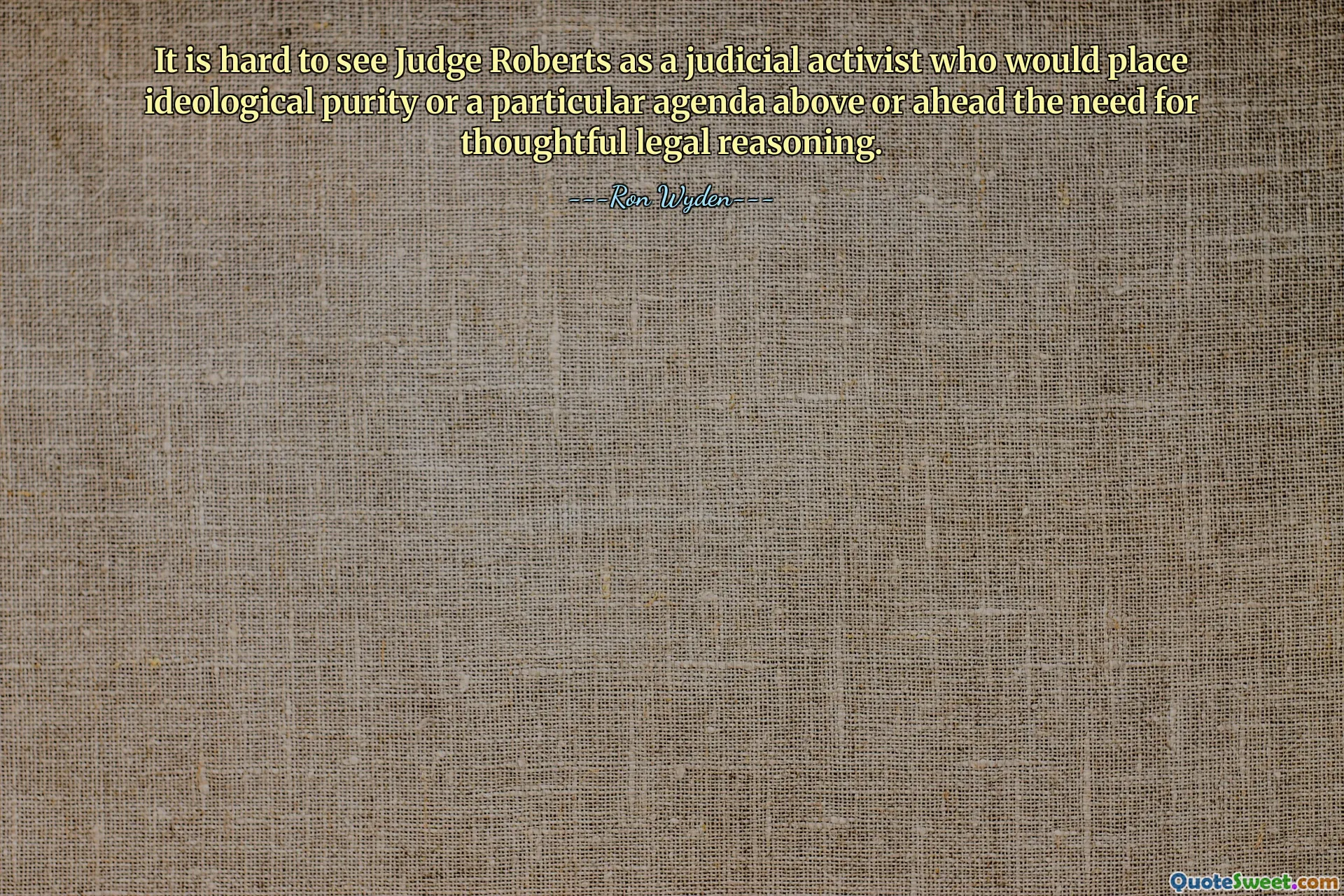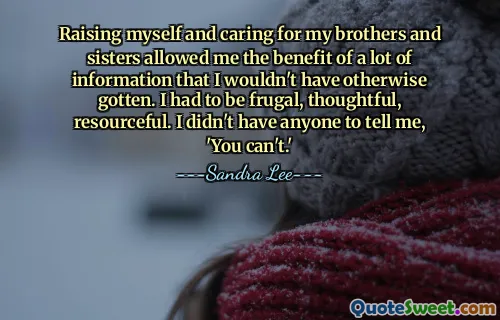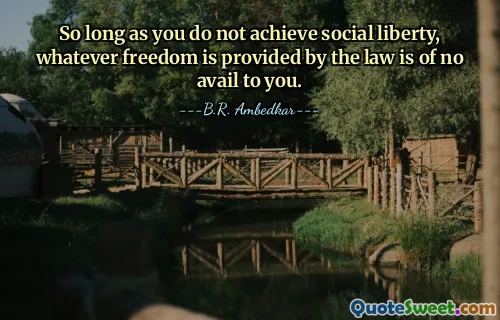
It is hard to see Judge Roberts as a judicial activist who would place ideological purity or a particular agenda above or ahead the need for thoughtful legal reasoning.
This quote highlights an important aspect of the judicial process: the perceived impartiality and commitment to legal reasoning exhibited by Judge Roberts. It suggests that, despite political debates surrounding judicial activism, Roberts is viewed as a figure who prioritizes careful and thorough legal analysis over imposing personal or ideological beliefs on legal interpretations. The emphasis on 'thoughtful legal reasoning' underscores the value placed on jurisprudence that respects precedent, legal principles, and case-specific facts rather than driven by partisan or ideological motives.
In the broader context of the judiciary, such a view supports the notion that judges should serve as objective arbiters rather than advocates for particular political aims. It reinforces trust in the judicial system when leaders are perceived to exercise their authority with integrity, considering the rule of law over subjective preferences. This perspective also invites discussion about the importance of judicial philosophy and how it influences decision-making. Judges like Roberts are often critiqued or praised depending on their rulings and perceived motivations, but clarity about their commitment to legal policies rooted in reason is crucial for maintaining the judiciary's credibility.
Moreover, this quote underscores the ongoing debate about the balance between ideology and law. Judicial activism, a contentious term, often refers to judges making decisions that create or alter policy. Here, the assertion is that Roberts resists that characterization, suggesting he is more aligned with legal restraint. This distinction is vital in understanding the role of a judge: to interpret the law fairly without excessive influence from political or personal ideologies. In a democratic society, an independent judiciary that values thoughtful legal reasoning is fundamental to safeguarding rights and maintaining the rule of law amidst complex and evolving societal issues.









